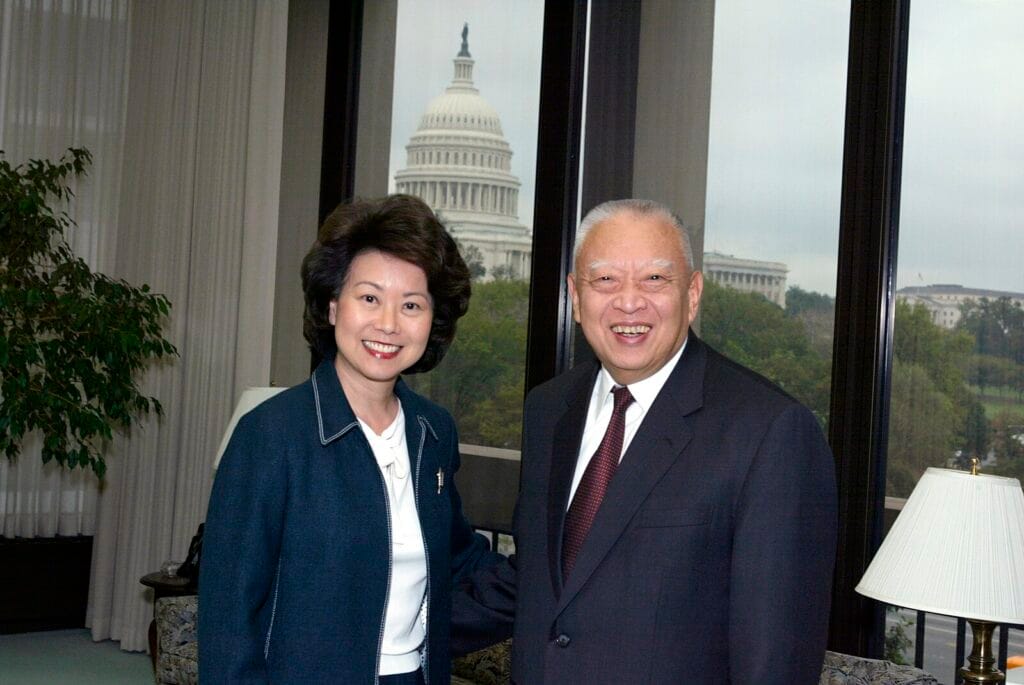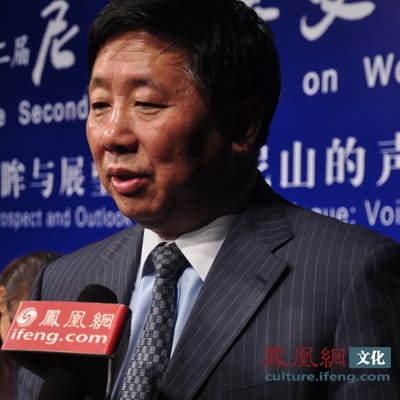From NATO’s bombing of the Chinese Embassy in Belgrade to the return of the Panama Canal to Panama by the US, 1999 was a year of defining world events and Millennium angst. Amid these global changes, Dui Hua began its own endeavor from an office in San Francisco.
<< Read all John Kamm Remembers stories
In early 1999, a group of like-minded businesspeople who believed that promoting respect for human rights is good for business, came together to establish a human rights group to advance this idea. We decided to name the new foundation “Dui Hua”—对话, Chinese for dialogue—as our preferred approach to advocating for human rights reforms and the release of prisoners, in contrast to “naming and shaming,” the preferred approach of other human rights groups.
Based on the results of my China advocacy that began in 1990, we would focus on securing the release and better treatment of political and religious prisoners. Later, the foundation broadened its mission to include advocacy for three other groups of people at risk of detention in China: juvenile offenders, women in prison, and individuals sentenced to death.
Dui Hua Established
The Dui Hua Foundation was officially established in San Francisco on April 16, 1999. In anticipation of the foundation’s birthday, I look back at what I was up to in the weeks before Dui Hua’s establishment.

On January 21, 1999, I met with officers and members of the World Affairs Council (WAC) of San Francisco to plan a trip to Hong Kong later that year. The trip was to feature meetings at Government House and the first meeting granted by Mr. C. H. Tung since his appointment as the Chief Executive-designate of the Hong Kong Special Administrative Region in 1997. The trip would feature meetings with Hong Kong politicians, business leaders, academics and journalists, as well as sight-seeing and meals at the city’s famed restaurants.
In early February, I worked on finalizing an application to secure funding from an American foundation. It was then that I learned that I would need to use a “pass-through” if the grant was approved. Initially, I approached a university in California but decided against trying to use them when I was told the university would take a hefty percentage of the grant simply to handle administration. After discussions with friends who would together make up the fledgling foundation’s first board of directors, a decision was made to establish Dui Hua.
In 1999, I was still actively involved in business with China. In February, I traveled to Beijing to oversee a technical exchange I had arranged for a client, a manufacturer of PVC building materials.
Mixing business with human rights, I met with officials of the Ministry of Foreign Affairs, the Ministry of Justice, and the Religious Affairs Bureau (RAB). For my meeting with the RAB, I raised cases of imprisoned Catholics. According to my notes, it was a difficult meeting. When I asked Director Ye Xiaowen why he agreed to meet me, he replied: “Because I was told that I had to meet you.”

From Beijing I flew to Qingdao, a city in Shandong Province that I knew well from discussions to establish a joint venture. There, I met with the local branch of the China Council for International Trade. In anticipation of this meeting, I had forwarded lists of political and religious prisoners detained in the aftermath of the June 4, 1989, killings in Beijing. I was given information on five prisoners, all of whom were subsequently released from prison early. I agreed to serve as an honorary advisor to the council.
Events in Washington
For the rest of March, and in the first two weeks of April, I spent time in Washington. On March 30, 1999, I attended a dinner for China’s Minister of Labor, Li Boyong, at Blair House in Washington. Later, on April 8, 1989, I attended a lunch for Chinese premier Zhu Rongji, at the State Department. Zhu had come to Washington to secure Washington’s support for China’s application to join the World Trade Organization. He was to leave Washington empty-handed. Fearing opposition from Congress, President Bill Clinton had balked.

In reviewing Dui Hua archives, I was struck how some things have not changed, while others have changed a great deal. I continue to focus on advocacy for prisoners, raising names and submitting lists. Since Dui Hua’s establishment, we have submitted more than 500 lists of names with more than 2,000 names on them. We have learned of around 520 acts of clemency and better treatment. Patience and persistence remain hallmark modes of operation.
On the other hand, I am no longer active in business. I no longer serve on corporate boards of directors. No longer do I sell or invest in Asia. I used to travel to China and Hong Kong several times a year. I no longer do so.
What has changed the most is that US-China relations have sharply deteriorated, in sharp contrast to the state of relations in 1999.
Listen to the Encounters with China podcast.
Subscribe to receive notifications about new episodes.
Read all John Kamm Remembers stories.
